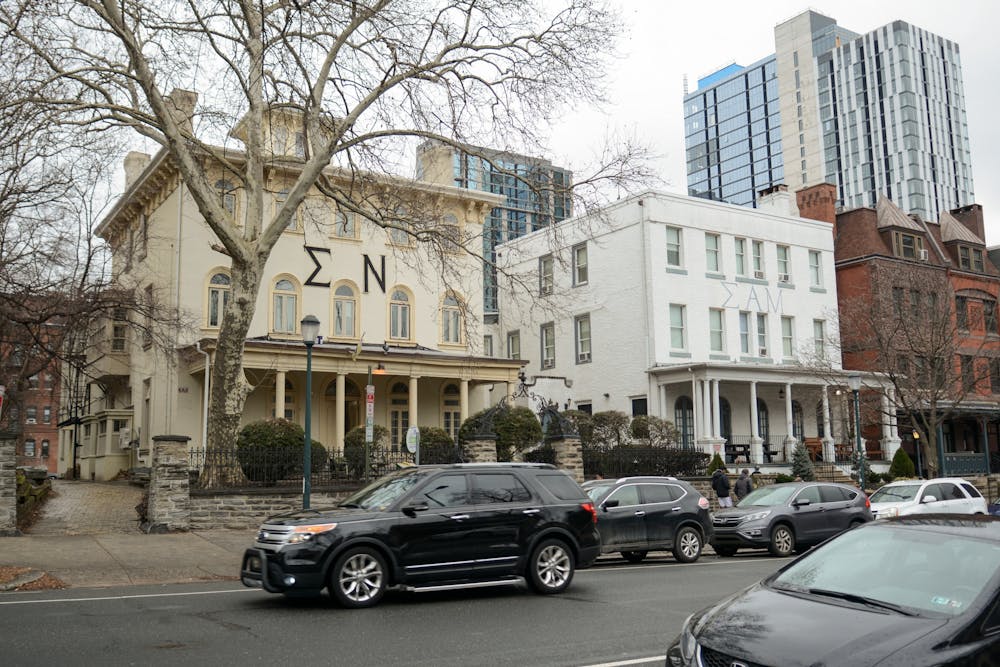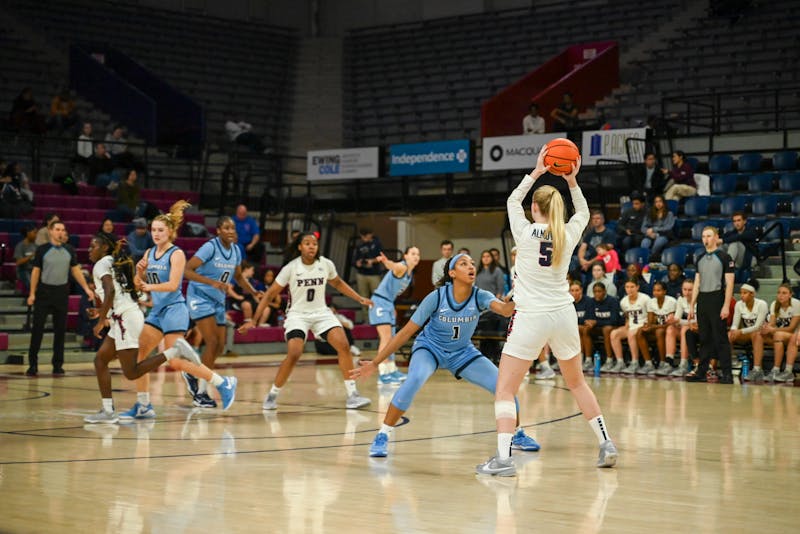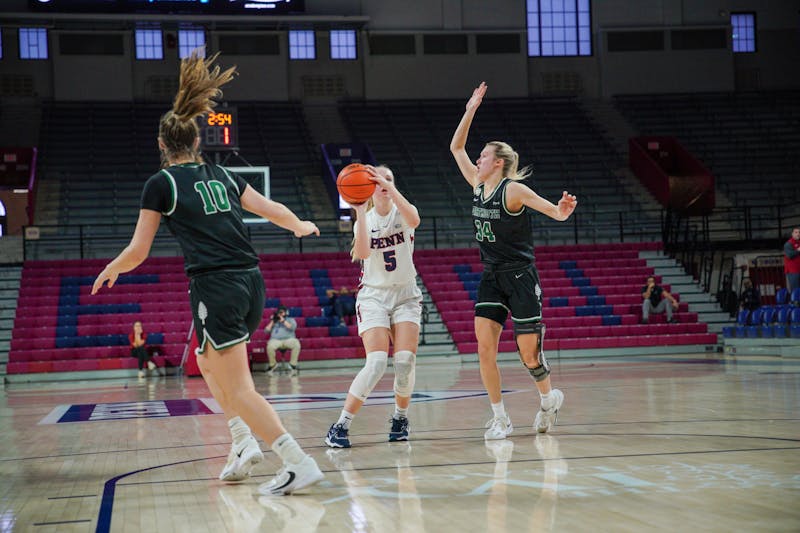
Senior Columnist Mritika Senthil explains how Penn's restrictive guidelines on event registration fails to protect students.
Credit: Hannah LazarAccording to Penn’s hottest, wealthiest finance bros, Paddy’s — an unofficial weekend rager following actual Saint Patrick’s Day — was practically Mykonos, Greece in midterm season. Cheaper, of course, and allegedly sponsored by not just generational wealth, but ketamine and Veuve Clicquot in Solo cups.
To be fair, I’m hardly a credible insider when it comes to Penn’s social scene — not just because I’ve never been particularly involved in it, but because I’ve likely burned that bridge altogether by publicly criticizing greek life. And, even now, I think that Paddy’s is just people in green funneling vodka and electrolytes from plastic jugs labeled “BORG.”
But, for those of us who might view Paddy’s as something less than Penn’s finest cultural moment, the Office of Fraternity and Sorority Life’s unpopular cap of 100 attendees at registered events merits our attention.
During Major Event Weekends like Paddy’s, each student group on campus is allowed to host only one event, whether it is dry or involves alcohol. Events with alcohol, however, are also capped at a 3-1 guest-to-member ratio. For instance, if a fraternity or sorority chapter has only 10 members, the maximum attendance is 40 people. OFSL’s limits apply even to large, ventilated houses that could safely accommodate more attendees.
OFSL may be responding to pressure from local residents tired of public intoxication and overcrowded sidewalks, concerned parents who don’t want their kids in out-of-control environments, or alumni and donors who value Penn’s reputation. After all, Penn is an urban campus. In 2019, Penn reported 147 safety-related incidents involving students on public property in the Philadelphia neighborhood around the campus. Noise complaints, crowding, and unsafe off-campus behavior don’t just affect students; they affect residents of University City. Events like Paddy’s are especially hard to manage. Even when fraternities follow registration rules, the sheer volume of people and energy creates unpredictable situations. OFSL may feel that putting a hard cap is the only simple lever to reduce risk across the board.
However, a purported member of greek life on Sidechat — the infamous part-Reddit, part-Messages app that facilitates private conversations among college students — explains, “OFSL is regulating Greek life to the point where it begins to either a) become all off-campus or b) cease to exist.” Fraternities, when faced with a limit, will prioritize brothers and close friends in addition to others with strong social ties. That leaves students from marginalized backgrounds disproportionately on the outside looking in, if they’re in the know at all.
Furthermore, those not plugged into legacy social networks will still party. But with the safest, regulated places out of the question, more students go to bars using fake IDs, unregulated apartments, or even the streets. OFSL has turned Penn’s already vulnerable social scene into a tiered asset class. Who manages access, who’s getting yield, and who’s just stuck outside refreshing their texts for an in?
Penn consistently promotes the idea that students will find open doors to experiences that “unit[e] people across meaningful differences on campus,” yet its effort to keep people safe ends up creating smaller, riskier, and more stratified events. When OFSL or other leadership unilaterally impose policies without involving student voices, it sets a precedent. Today, fraternities are affected. Tomorrow, clubs, performing arts groups, or student publications could be subject to OFSL restrictions.
On Sidechat, over 1,000 students upvoted that they would “sign a petition against OFSL.” One dissenter suggests that “[m]ost of the Penn administrative staff need to be let go, starting with the University Life office that wants to plan “appropriate social events” for students.” The aforementioned greek life member adds, “My Greek organization has helped me through times when the pressure feels like too much, and I genuinely do not know what I — or many others — would do here without those support systems.” This backlash shows how the policy was made without student input — and by people without relevant lived experience. OFSL has been a part of campus life since 1849, when the Delta Phi fraternity established its Eta chapter at Penn. And for over 175 years, the OFSL has guided over 40 fraternities and sororities as high-profile sexual assault allegations and other controversies have brought greek life under national scrutiny. But when there’s no real feedback loop or path to revision, students stop engaging with the system altogether.
Last December, I’d criticized OFSL’s ban on daytime parties during Homecoming weekend, during which the Penn administration wanted to funnel students into an official tailgate. This time, though, there’s no real effort on Penn’s part to create alternative programming that’s actually appealing. Sure, you can go to a wellness hour at Pottruck Health and Fitness Center with free coffee and yoga mats — but that’s not going to fill the social gap many of us are craving.
Now, we’re at an inflection point between rejecting the absurdity of college drinking culture and still wanting organic, accessible social space. OFSL is unfortunately not helping either side.
MRITIKA SENTHIL is a sophomore from Columbia, S.C. Her email is mritikas@upenn.edu.
The Daily Pennsylvanian is an independent, student-run newspaper. Please consider making a donation to support the coverage that shapes the University. Your generosity ensures a future of strong journalism at Penn.
Donate









